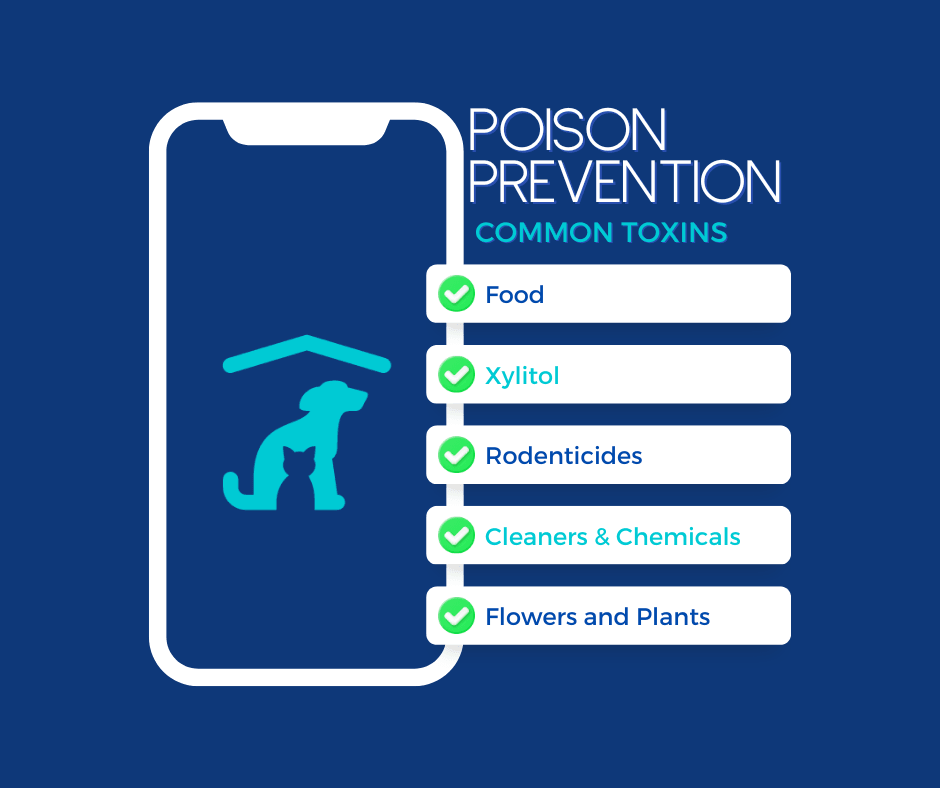March is recognized as Pet Poison Prevention Month- and for good reason. According to the Virginia-Maryland College of Veterinary Medicine, accidental poisoning is the leading cause of injury and death in companion pets. Most poison cases can be avoided- through education on the dangers and partnered with swift response from pet parents.
Food
As we celebrate St. Patrick’s Day and Easter, it is important to stay vigilant in the kitchen. Many of the common ingredients for celebratory meals are harmful to your pets. Keep those chocolate bunnies away from your four-legged friends. Some other food items to beware of:
- Keep the dried currants and raisins in your Irish Soda Bread. Dried fruit and raisins, while tasty and delightful are extremely toxic to pets.
- Your pet doesn’t need beer to feel lucky on St. Patrick’s Day- because they have YOU!
- Enjoying a sweet treat for Easter? Make sure that your pet isn’t consuming any sugar-free candies as many can contain a sweetener called Xylitol that is deadly in companion animals.
Rodenticides and Garden Chemicals
As spring arrives in Central Virginia, so do springtime pests and rodents. Many of the baits used to get rid of household pests, like rats, snails, ants and slugs are dangerous for your pets.
A garden filled with beautiful flowers, a sparkling clean pool and a lush green yard are all things to look forward to this summer. The only problem is that many of the chemicals that you use to achieve a garden filled with flowers, a sparkling pool and lush green yard are dangerous to your pet. Be on the lookout for vomiting, diarrhea and changes in behavior.
Flowers and plants
Easter is just around the corner- and the floral shops are brimming with lilies. Certain varieties of lilies are extremely toxic for our feline friends- like tiger lilies and day lilies. We encourage you to stay away from these flowers in your arrangements or place them in a safe place where your cat can’t make a quick snack of it. Cat who have ingesting lilies often develop drooling, decrease in their activity level, vomiting and loss of appetite.
Many pets are naturally curious and sometimes accidents happen. However, by being vigilant about the dangers of accidental poisoning you can help ensure they live a long and happy life. We encourage all owners if you are concerned or think that your pet has accidentally ingested something that they shouldn’t to visit ASPCA’s Pet Poison Control Center.

